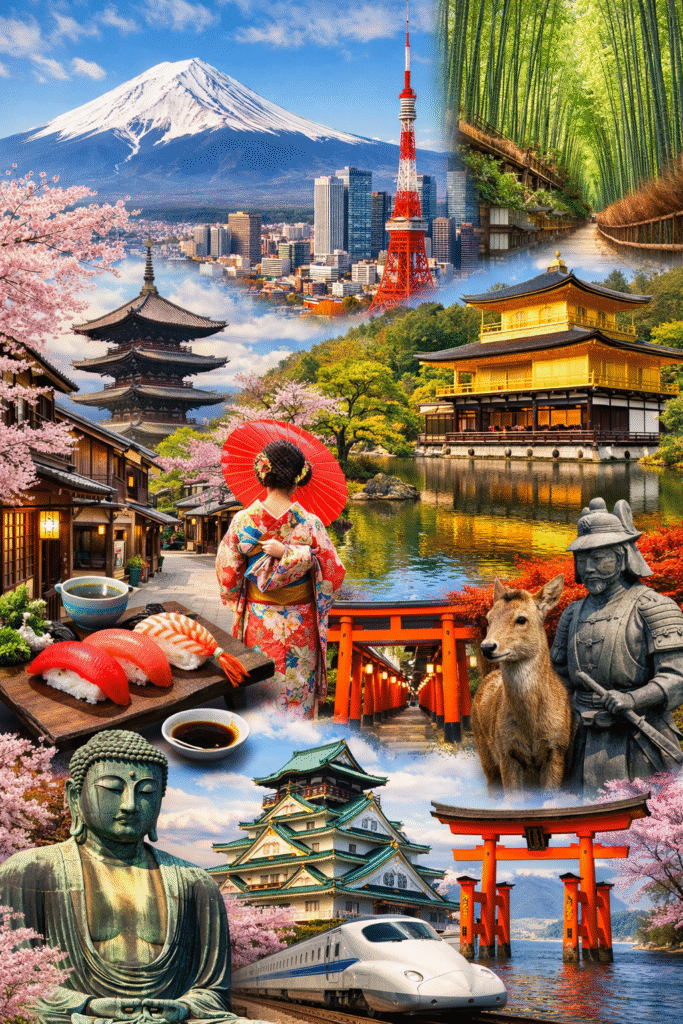Welcome to Nagaland, a land of mystic mountains, 16 proud tribes, and ancient traditions that still pulse through the air. Tucked away in the far northeast, this state is a true cultural treasure for travelers seeking raw, untamed beauty and powerful stories rooted in the hills.
Every village in Nagaland feels like its own world — unique, rich with heritage, and ready to welcome curious travelers.
Kohima – A City of Warriors and Tranquility
The capital city of Nagaland, Kohima, is not just a starting point – it’s an experience in itself. Surrounded by forests and valleys, it holds history, heroism, and harmony.
Places to explore
- Kohima War Cemetery, a beautifully kept memorial that honors soldiers from World War II – peaceful and moving
- State Museum, for a deep dive into Naga tribal lifestyles, jewelry, attire, and myths
- Dzükou Valley, a paradise of wildflowers, bamboo forests, and camping dreams just outside Kohima
- Puliebadze Peak, a quiet trek with glorious views of Kohima and its surroundings
Ideal for history lovers, nature seekers, and peace-minded explorers
Hornbill Festival – The Festival of Festivals
Held every December in Kisama Heritage Village, near Kohima, the Hornbill Festival is a grand celebration of all Naga tribes.
Why travelers love it
- Witness traditional dances, music, and mock tribal warfare
- Taste local delicacies from every tribe
- Shop unique handmade crafts and experience the unity in diversity of Nagaland
- Perfect opportunity to engage with the Naga people and their colorful heritage
Great for cultural tourists, photographers, and anyone who loves a vibrant vibe
Mon – The Tattooed Land of the Konyak Warriors
Head to Mon District to meet the Konyak tribe, known for their tattooed faces, headhunting past, and craftsmanship.
What to explore
- Visit Longwa Village, where one half of the village is in India and the other in Myanmar – the village chief’s house straddles the border
- Interact with elders who still carry ancient tattoos and tales
- Buy handcrafted guns, pipes, and jewelry made by Konyak artisans
- Attend Aoleang Festival in April, a traditional harvest festival full of tribal pride
Perfect for anthropology enthusiasts, solo travelers, and those who crave edge-of-the-map experiences
Mokokchung – The Cultural Soul of the Ao Tribe
This charming district is often called the intellectual and cultural capital of Nagaland.
Discover
- Ungma Village, one of the oldest and most vibrant Ao Naga villages
- Longkhum Village, perched on a cliff with panoramic views and orchids growing wild
- Enjoy Ao cuisine, storytelling, and music in homestays full of warmth
- Learn about the role of Christianity in shaping modern Naga society
Great for meaningful interactions and village slow travel
Tuensang – Nature’s Hidden Canvas
Tuensang is still largely unexplored by tourists, which makes it a raw and pristine destination.
Why it’s special
- Rolling hills, dense forests, and untouched tribal cultures
- Home to tribes like Chang, Sangtam, and Yimchunger
- Ideal for off-the-beaten-track exploration, village stays, and cultural immersion
Best for bold travelers, hikers, and documentary lovers
Wokha – The Land of Rhododendrons and Pineapples
Wokha is home to the Lotha tribe and offers a mix of vibrant culture and soft, scenic landscapes.
Explore
- Mount Tiyi, associated with Naga legends and known for its mystical aura
- Orchards of oranges and pineapples that fill the air with sweet aroma
- Doyang River Reservoir, great for bird watching, especially migratory falcons in October
Ideal for nature lovers, cyclists, and those looking for peaceful countryside
Zunheboto – Music, Faith, and Folk Traditions
Known for its deep-rooted Baptist faith and musical talent, Zunheboto offers soulful experiences.
Discover
- Sumi Baptist Church, one of the largest churches in Asia
- Sumi tribe’s cultural richness, especially their warrior dances and music
- A calm rural vibe perfect for slow exploration and reflection
Perfect for spiritual travelers, music lovers, and those who enjoy silence in sacred places
Cuisine of Nagaland – Bold, Smoky, and Spicy
Naga food is as unique as its people – a celebration of firewood-smoked meats, bamboo shoots, and local herbs.
Flavors to try
- Smoked Pork with Bamboo Shoot, a local favorite served with sticky rice
- Axone (fermented soybeans), with its strong aroma and deep flavor
- Zutho, a traditional fermented rice beer shared during festivals
- Don’t miss chutneys made with Raja Mircha – one of the world’s hottest chilies
Great for culinary adventurers and spice lovers
When to Visit Nagaland
- October to March – Best season with cool, dry weather and clear skies
- December – For the Hornbill Festival and winter celebrations
- Avoid the monsoon months from June to August due to slippery roads and landslides
How to Reach and Travel Around
- Fly into Dimapur Airport (connected to Kolkata, Guwahati) and take a road trip to Kohima or other regions
- Inner Line Permit (ILP) is required for Indian tourists – easy to get online
- Roads are winding, but the views are unforgettable
- Opt for homestays or tribal lodges to experience true Naga hospitality
Responsible Travel in Nagaland
- Respect local customs, especially in tribal villages
- Always ask before taking photos of elders or cultural ceremonies
- Avoid plastic and support local artisans by buying from village markets
- Participate in local life – try a hand at weaving or cook a meal with your host
Why Nagaland Is a Must for Conscious Travelers
Nagaland isn’t about tourist spots – it’s about stories, resilience, and living traditions. It’s a place where time slows down and hearts open wide. The people here have lived through change but have held onto their identity with pride.
If you’re looking for a journey that goes beyond sightseeing — one that connects you to a way of life — Nagaland will stay with you long after you leave.


